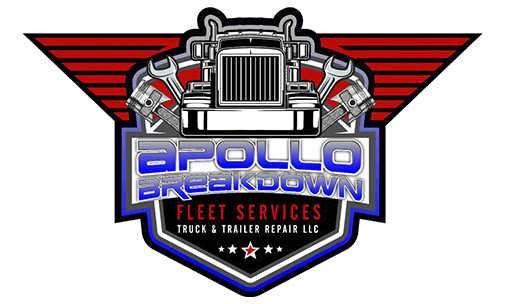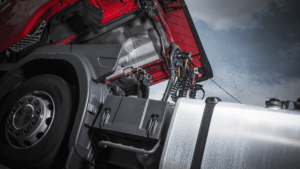Proper trailer maintenance is crucial for truck owners who aim to keep their fleet in top shape, ensuring safety, efficiency, and longevity. Routine checks and timely repairs can prevent costly breakdowns and extend the life of your trailers. In this guide, we will provide a comprehensive overview of essential maintenance tips, covering everything from tire care and brake inspections to electrical system upkeep and structural integrity. By adhering to these best practices, you’ll not only safeguard your investment but also enhance the performance and reliability of your fleet.
Daily Walk-Around Checks
Daily walk-around checks are essential for identifying any visible issues before they turn into costly repairs. Start by inspecting the tires for proper inflation and any signs of wear or damage. Ensure that all lights and reflectors are functioning correctly. Check for any leaks underneath the trailer, which could indicate problems with the braking system or other components.
Look at the trailer’s body for any signs of damage or rust that might compromise its structural integrity. Additionally, make sure that all safety chains and hooks are in good condition and securely fastened. By incorporating these daily checks into your routine, you can catch small problems before they escalate, thereby maintaining the overall health and safety of your fleet.
¿Looking for professional help? Our team is 100% trained to help you and solve any problem, visit our website now!
Weekly Detailed Inspections
Weekly detailed inspections go beyond the daily walk-around checks and involve a more thorough examination of your trailer. Begin by closely inspecting the tire treads for uneven wear patterns, which could indicate alignment issues.
Check the brake pads, drums, and discs for wear and tear, ensuring that all components are within their operational limits. Examine the suspension system, including springs and shock absorbers, for signs of wear or damage. Additionally, inspect the electrical system, ensuring that all wiring is intact and free from corrosion.
Pay attention to the trailer’s coupling devices and ensure that they are in good working condition. Lubricate moving parts such as hinges, latches, and landing gear to prevent rust and ensure smooth operation. These comprehensive checks can help identify potential issues early, allowing for timely maintenance and preventing unexpected breakdowns.
We recommend you to see this article: COMMON TRAILER SUSPENSION PROBLEMS AND SOLUTIONS
Monthly Comprehensive Evaluations
Monthly comprehensive evaluations are crucial for maintaining the long-term health of your trailers. These evaluations should include all the checks performed during daily and weekly inspections, but with added depth. Examine the frame and chassis for any signs of structural fatigue or corrosion, paying special attention to welds and joints.
Inspect the hydraulic systems, ensuring that hoses and connections are free from leaks and wear. Test the brake system thoroughly, including air lines, reservoirs, and valves, to ensure optimal performance. Review the trailer’s alignment and make necessary adjustments to prevent uneven tire wear.
Additionally, check the condition of the flooring and wall panels to ensure they are free from damage or rot. Finally, review all maintenance logs and update them with any repairs or replacements performed. These comprehensive evaluations are essential for catching issues that might not be apparent during more frequent inspections, thus ensuring the longevity and reliability of your trailers.
Apollo saves you time and money to keep you moving, visit our website here.
Essential Maintenance Practices
Adhering to essential maintenance practices is key to keeping your trailers in optimal condition. First, establish a regular lubrication schedule for all moving parts, including wheel bearings, hinges, and landing gear. Lubrication minimizes friction and prevents wear and tear.
Next, ensure that your tires are always inflated to the manufacturer’s recommended pressure, as under-inflated or over-inflated tires can lead to uneven wear and potential blowouts. Regularly inspect and replace brake pads and other brake system components to guarantee effective stopping power.
Keep an eye on the electrical system, checking for any frayed wires or loose connections that could cause malfunctions. Additionally, clean the trailer’s exterior and undercarriage to remove dirt, salt, and debris that can cause rust and corrosion.
We recommend you to see this article: TRAILER HITCH REPAIR: ENSURING SAFE TOWING ON THE ROAD
Seasonal Maintenance Tips
Seasonal maintenance is crucial for adapting to changing weather conditions and ensuring your trailers remain in top shape year-round. In the winter, focus on protecting your trailers from cold temperatures and road salt. Apply anti-corrosion treatments to the undercarriage and ensure that tires are suitable for icy conditions.
Check that all lighting and electrical systems are functioning correctly, as they are critical during shorter daylight hours. In the spring, conduct a thorough wash to remove any residual salt and inspect for rust or corrosion that may have formed. Summer maintenance should include checking the cooling systems and ensuring that tires are ready for the hot pavement to prevent blowouts.
Finally, in the fall, prepare for colder temperatures by inspecting heaters and ensuring that all seals are intact to keep out moisture. By tailoring your maintenance practices to the season, you can mitigate weather-related wear and keep your fleet running smoothly.
Our team is ready 24/7 to assist you, contact us here!
Advanced Maintenance Techniques
For those looking to go beyond basic upkeep, advanced maintenance techniques can further enhance the longevity and performance of your trailers. One such technique is predictive maintenance, which involves using sensors and telematics to monitor the real-time condition of your trailer components.
This data can help predict when parts are likely to fail, allowing for timely replacements. Another advanced method is ultrasonic testing, which can detect internal flaws in metal parts that are not visible to the naked eye. This is particularly useful for assessing the integrity of critical components like the frame and chassis.
Additionally, conducting regular alignment checks using laser alignment tools can ensure that your trailers are perfectly balanced, reducing tire wear and improving fuel efficiency. Implementing these advanced techniques requires an initial investment but can lead to significant long-term savings by preventing unexpected breakdowns and extending the overall lifespan of your fleet.
We recommend you to see this article: EMERGENCY MOBILE REPAIR FOR REFRIGERATION UNITS ON TRUCKS
Common Issues and Solutions
Understanding common issues and their solutions can help you address problems promptly and keep your trailers in top working condition. One frequent issue is tire blowouts, often caused by under-inflation or overloading. Regularly check tire pressure and load limits to mitigate this risk.
Brake failure is another common problem, usually resulting from worn-out pads or leaking brake lines. Regularly inspect and replace brake components to ensure optimal performance. Electrical problems, such as faulty lights or dead batteries, can arise from corroded connectors or worn wiring. Regularly clean and inspect electrical connections to prevent such issues.
Rust and corrosion, especially in humid or salty environments, can compromise the structural integrity of your trailer. Applying anti-corrosion treatments and regular cleaning can help prevent this. By being aware of these common issues and their solutions, you can take proactive measures to maintain the reliability and safety of your fleet.
Call us for truck repair road service here. We are in Florida, Texas and Georgia. Open 24/7.






